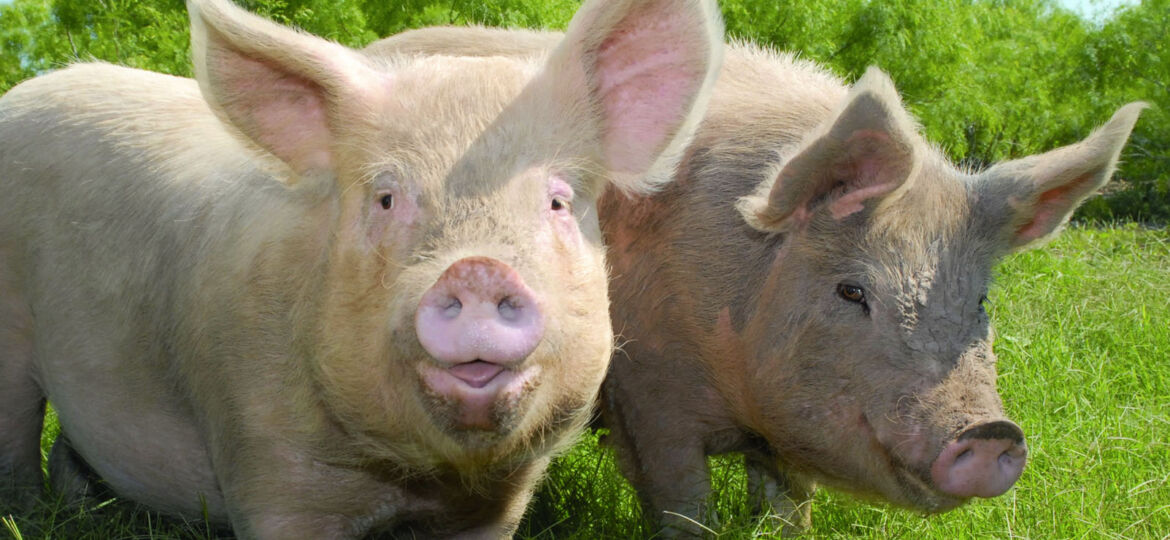
WHY THIS MATTERS IN BRIEF
Global supply chains are complex and can be easy for criminals to exploit by putting pork onto the blockchain Walmart are able to ensure and query the integrity of their supply chains, identify problems and pull tainted batches off of the shelves faster.
Walmart has turned to blockchain to help it track the movement of Chinese pork throughout its supply chain in an effort that it hopes will help it improve the safety and provenance of the meat in its largest global market.
In conjunction with IBM and Tsinghua University in Beijing Walmart is going to use blockchain to connect and verify all of the pork suppliers, shippers, buyers and other third parties involved in moving the product around China, who’ve recently experienced several food safety issues – including the government seizure in 2015 of 100,000 tons of smuggled pork, beef and chicken – some of which dated back to the 1970s.
Walmart hopes that by using blockchain ledgers, the technology best known for underpinning Bitcoin, to record transactions about pork sales and distribution it can help guard against tampering and other illegal activity as they wind there way through the complex supply chains and eventually into Walmarts stores in China.
“Most supply chains are fairly lengthy so it’s easy to introduce cheating because not everyone knows all the other players in the chain,” said Paul Chang from IBM who’s involved in the project.
Like most merchants, the world’s largest retailer struggles to identify and remove food that’s been recalled and when a customer becomes ill it can take days to identify the product, shipment and vendor. Using the new blockchain online ledger, which is based on IBM’s version of Hyperledger, Walmart will be able to quickly pull crucial data from the customers receipt that instantly flags up all of the details associated with that specific contaminated batch – such as who the supplier was, where it was produced, the shipping information, who inspected it and much more.
“It gives them the ability to trace everything from origin to completion,” said Marshal Cohen, an analyst at researcher NPD Group, “if there’s an issue with an outbreak of E. coli, for example, then this system gives them the ability to immediately find where it came from. That’s the difference between days and minutes.”
It’s also the difference between pulling a few tainted packages and yanking all the spinach from hundreds of stores, says Frank Yiannas, Vice President of Food Safety at Walmart.
“With blockchain, you can do strategic removals, and let consumers and companies have confidence,” Yiannas said, “we believe that enhanced traceability is good for other aspects of the food systems. We hope you could capture other important attributes that would inform decisions around food flows, and even get more efficient at it.”
According to the Centers for Disease Control & Prevention (CDC) in the US more than 1,000 foodborne outbreaks are investigated by state and local health departments each year and they estimate that each year roughly 48 million Americans suffer from food poisoning, with 128,000 of those hospitalised and 3,000 dying as a result. Several famous American restaurant chains, such as Chipotle Mexican Grill have been hammered this year because of outbreaks and last year the UK suffered one of its biggest food chain scandals when it was discovered that bent suppliers had substituted beef for horse meat in hundreds of thousands of popular products.
While this system might not have prevented them from happening it would certainly have helped those chains identify and withdraw the infected batches faster. Meanwhile Walmart aren’t the only one using blockchain to improve the transparency and efficiency of their supply chain. BHP Billiton, the worlds largest mining group, recently announced they are using blockchain to record and track geological samples and not to be left out Tuna, the worlds most popular fish, also recently got its own blockchain, except this time, in addition to Walmarts use cases, blockchain is being used to help the Asian fishing industry fight the use of slave labour which has blighted the industry for years.
As the use cases, and benefits start stacking up the only question that’s left to ask is – when are you going to use it?

















Matthew, any idea if they’re using Provenance ?
Hey Mark
I don’t think they did since it never came up… but it could be an interesting angle, or addition. This is Walmart’s first foray into blockchain SCM